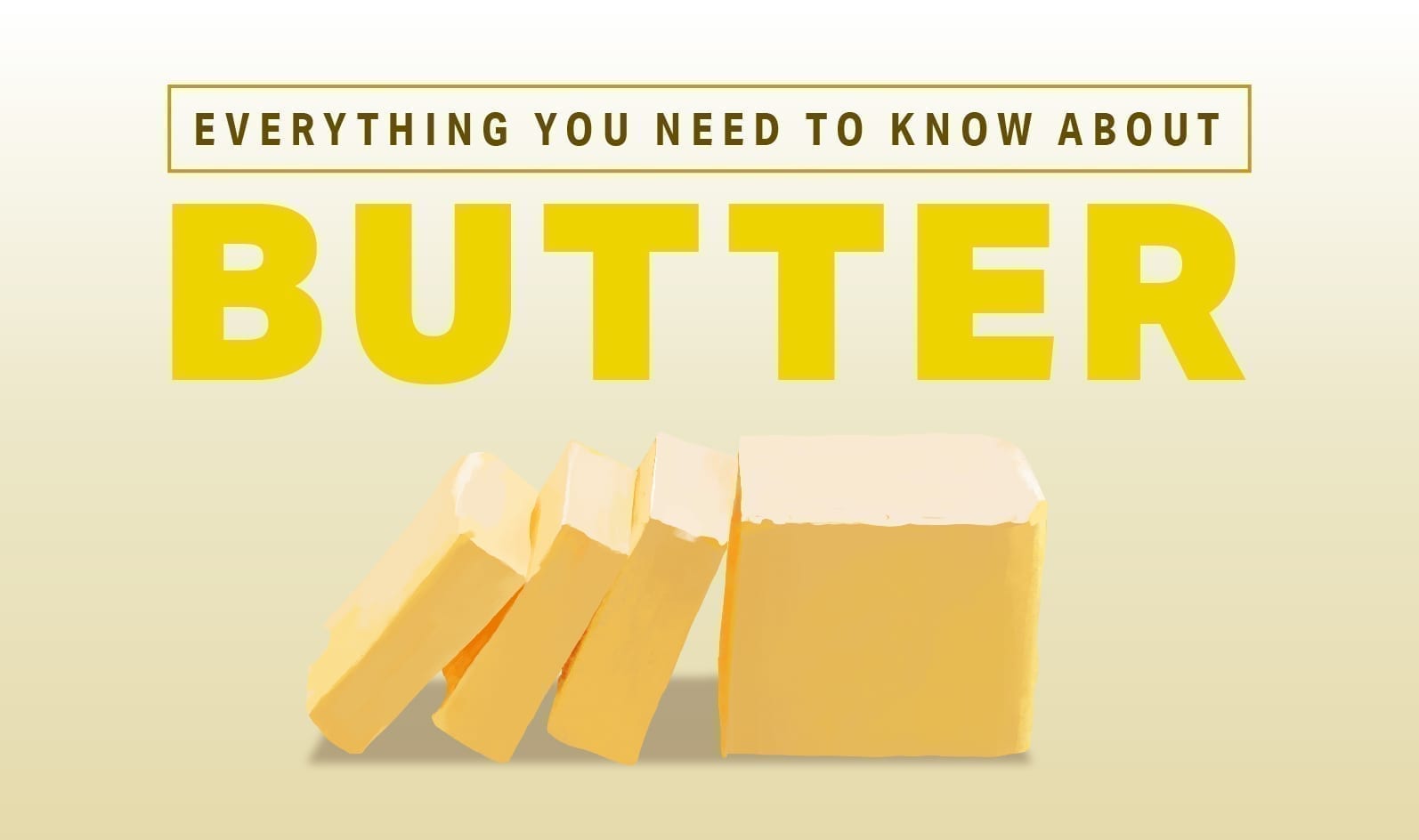Butter is one of the top-logged foods on MyFitnessPal, and it’s making even more of a comeback lately among those following high-fat diets like keto. Rich and flavorful, the popular spread is made of butterfat, water and milk solids, which are separated from milk then churned into creamy goodness. It’s still high in saturated fats (which boost LDL or bad cholesterol), so it’s best to enjoy it in moderation, along with a variety of healthy fats such as fatty fish, avocados and nut butters.
Here, everything you need to know about butter, including nutrition highlights, different varieties, healthy substitutions and more:

HOW BUTTER AFFECTS YOUR HEALTH
Butter is very high in saturated fats, which may increase your risk of heart disease. It’s also a high-calorie food, so when eaten in excess, it could contribute to weight gain. On the other hand, butter is a good source of vitamin A, which supports skin health and immune function, It also contains small amounts of vitamins E, B12 and K.
The key is to enjoy butter in moderation. Health professionals recommend keeping saturated fat intake low (Think: less than 10% of your daily calories). This means you’re best limiting yourself to about 3 tablespoons of butter a day for a 2,000-calorie diet, or half of that if you’re trying to lower your cholesterol levels.




